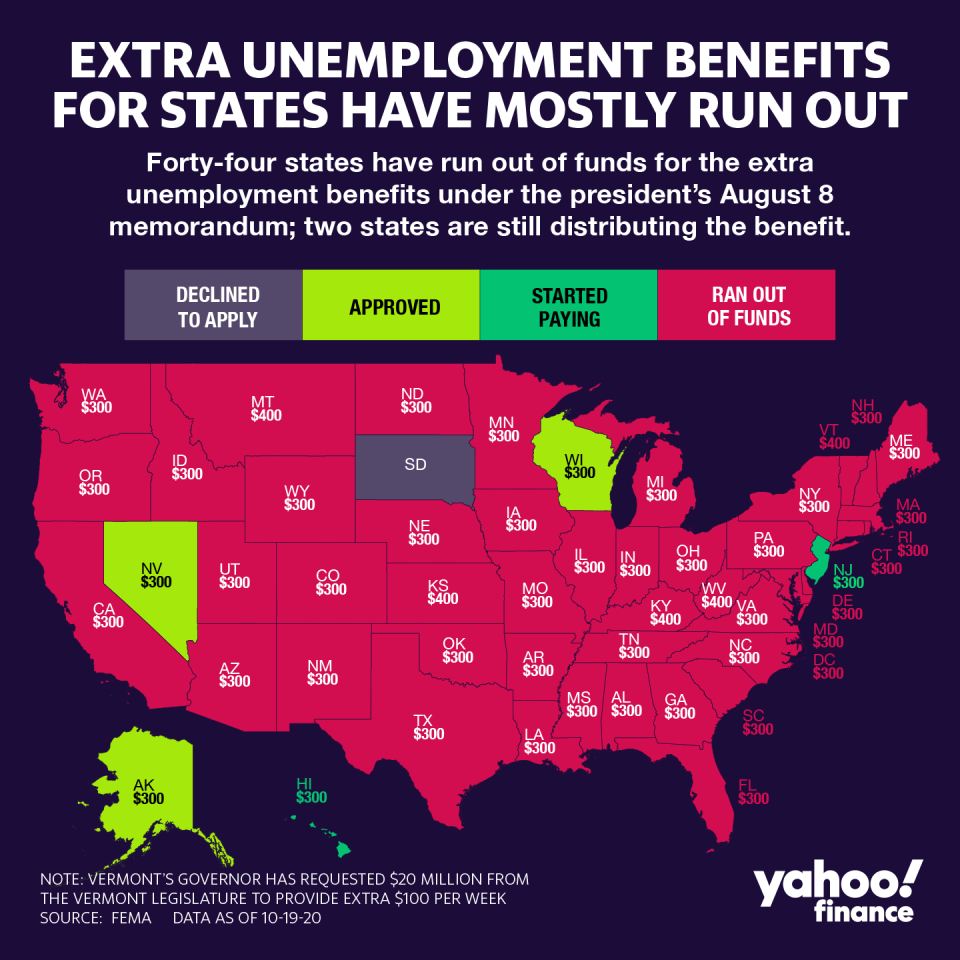Coronavirus stimulus: GOP's $500 billion plan fails in Senate as deadline for bigger deal looms
The GOP’s $500 billion coronavirus stimulus package failed to advance in the Senate on Wednesday as the White House and Democrats still negotiate on a larger deal that must be reached this week to pass before the election.
The Republican-controlled Senate voted 51 to 44 — along party lines — falling short of the 60-vote majority the bill would need to advance.
“Today, we're providing another chance to write the show,” Senate Majority Leader Mitch McConnell (R-KY) said ahead of the vote from the Senate floor on Wednesday. “Senators will vote to either advance or filibuster a broad package that would deliver on all kinds of urgent needs.”

The $500 billion bill, which is similar to the one that failed in the Senate in September, includes funding for the Payroll Protection Program (PPP), extra unemployment benefits, money for schools, and liability protections for businesses.
“The bill we’re voting on today has already failed in the Senate, didn't get a Democratic vote,” Senate Minority Leader Charles Schumer (D-NY) said from the Senate floor Wednesday ahead of the vote. “It’s laden with poison pills that our Republican colleagues know Democrats will never support.”
Read more: Here’s what you need to know about unemployment benefits eligibility
McConnell said he didn’t “anticipate that we will get any Democratic votes,” but he put the bill to a vote “to make the point to the American people that Senate Republicans believe another package is important,” he told reporters on Tuesday.
House Speaker Nancy Pelosi (D-CA) and Treasury Secretary Steven Mnuchin have been negotiating on behalf of the White House and Democrats for over three months on a new deal and are expected to talk again on Wednesday. A deal would have to be written by the end of this week to pass before the election, Pelosi told Bloomberg News on Tuesday.

‘Optimistic that there will be a bill’
The Democrats’ latest proposal is the revised $2.2 trillion HEROES Act, while the White House’s counterproposal is worth “almost $1.9 trillion,” according to White House Chief of Staff Mark Meadows.
“I'm optimistic that there will be a bill,” Pelosi told MSNBC on Wednesday. “It's a question of is it on time to pay the November rent, which is my goal, or is it going to be shortly thereafter, and retroactive.”
While the two parties have come closer on testing and tracing, disagreements remain on funding for state and local governments and liability protections.

The deal struck between the White House and Democrats would likely face stiff opposition in the Republican-controlled Senate. It would need 60 votes to pass the Senate, meaning at least 13 Republican senators would have to vote in favor of the legislation.
“If there's a bipartisan deal, I believe there would be enough votes there to make sure that we get that across the finish line and to the President's desk,” Meadows told reporters on Wednesday.
McConnell also agreed to put a bipartisan deal to a vote in the Senate — despite opposition from his party — but didn’t specify whether that will happen before or after the election.
“If a presidentially supported bill clears the House, at some point, we’ll bring it to the floor,” McConnell told reporters on Tuesday.
Denitsa is a writer for Yahoo Finance and Cashay, a new personal finance website. Follow her on Twitter @denitsa_tsekova.
Read more:
Follow Yahoo Finance on Twitter, Facebook, Instagram, Flipboard, SmartNews, LinkedIn, YouTube, and Reddit.

 money
money 

